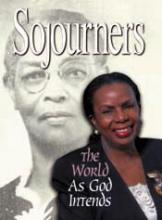All organizations should be developing back-up, or contingency, plans to address internal and external Y2K-related failures," says John Koskinen, chair of the governments council on Y2K. Important community issues underlie potential turn-of-the-century computer difficulties. We can respond to these moral and technical challenges actively or passively and individually or corporately. Everyone who cares about community must wake up to Y2K as a justice issue.
Two aspects of the Y2K challenges should especially concern us: what might actually happen as the result of computer glitches, and what could happen if individualist and survivalist voices prevail and we do not prepare together.
Community activists know that societal disruptions disproportionately affect those who are most at risk. However, rather than reflect seriously about Y2K, many of us have ignored it as millennial hype or assumed that someone else would solve it. Meanwhile most voices calling for preparation have focused on individual planning and personal readiness. It is past time for those who call for community to be involved.
The source of the Y2K challenge, or millennium bug, is straightforward. Two-digit fields representing years on computer chips (e.g. 85 means 1985) could cause chaos if computers interpret 00 as 1900 rather than 2000. No one really knows what impact this programming error will have on billions of poorly coded chips around the globe and in satellites in space on January 1, 2000.
Predictions of potential problems range from minor glitches in home appliances containing date chips to major power outages and breakdowns of governmental systems around the world. However, companies fearing lawsuits that would hold them liable resist offering specific assurances of readiness. Government agencies and others concerned about possible panic are also careful with their information.
Read the Full Article
